|
Genres, Themes, Actors, and Directors:
- African-Americans
- Cross-Cultural Romance
- Katharine Hepburn Films
- Race Relations
- Sidney Poitier Films
- Spencer Tracy Films
- Stanley Kramer Films
Review:
Although Peary doesn’t review this Oscar-nominated Stanley Kramer film in GFTFF, in his Alternate Oscars book he refers to it as a “dismal interracial-marriage comedy-drama”, and notes that “Hepburn’s [Oscar-winning] portrayal of a patient housewife who… must come to terms with daughter Katharine Houghton’s decision to marry” Poitier was the “blandest of her career”.
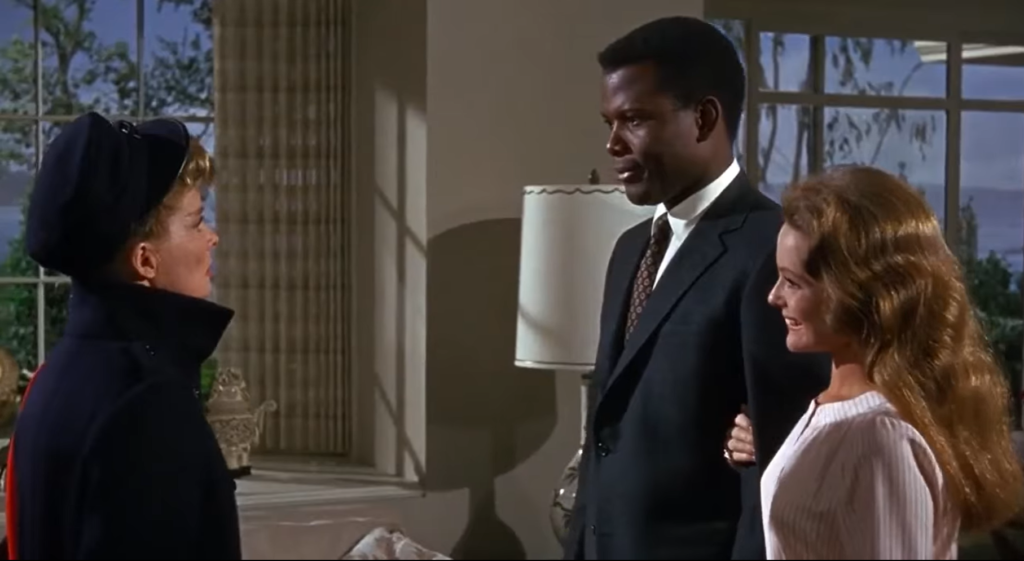
He writes that “you keep expecting her to have a tremendous scene all to herself, but it never happens”; indeed, her performance is really more of a supporting one, with nearly all the characters given equal air time (though Tracy’s white male opinion, perhaps predictably for the times, ultimately emerges as the definitive one). Speaking of Tracy, it’s hard not to be moved when watching what turned out to be his final performance (he died 17 days after production ended).
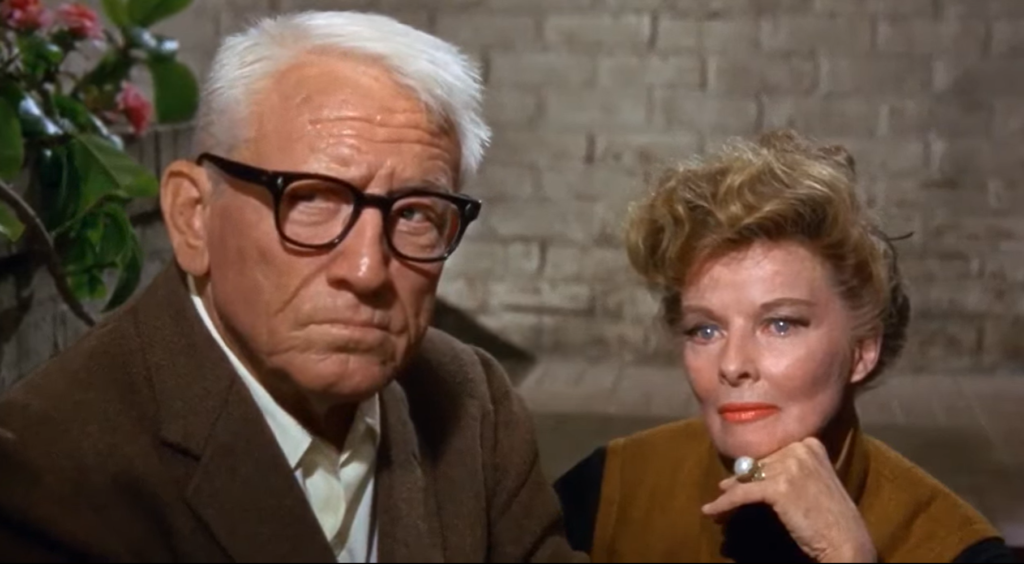
Meanwhile, the actors playing Poitier’s parents (Roy E. Glenn, Sr. and Beah Richards) are touching and believable in their scenes, and Poitier gives a solid if undistinguished performance in a role which he could surely relate to on a personal level.
The primary problem with William Rose’s well-meaning, occasionally incisive script is that — despite being written specifically for this production — it comes across as little more than a filmed play, with one intense, two-person dialogue scene coming right after the other; the only minor relief we’re given from this basic set-up is when Tracy and Hepburn stop to get some ice cream while out on a drive (but even this scenario — in which Tracy can’t remember the type of ice cream he once loved so much, takes a chance on a flavor he thinks might have “been the one”, is disappointed to find it isn’t the one he originally had, then concedes that it’s not too bad in its own right — devolves into a cliched metaphor).
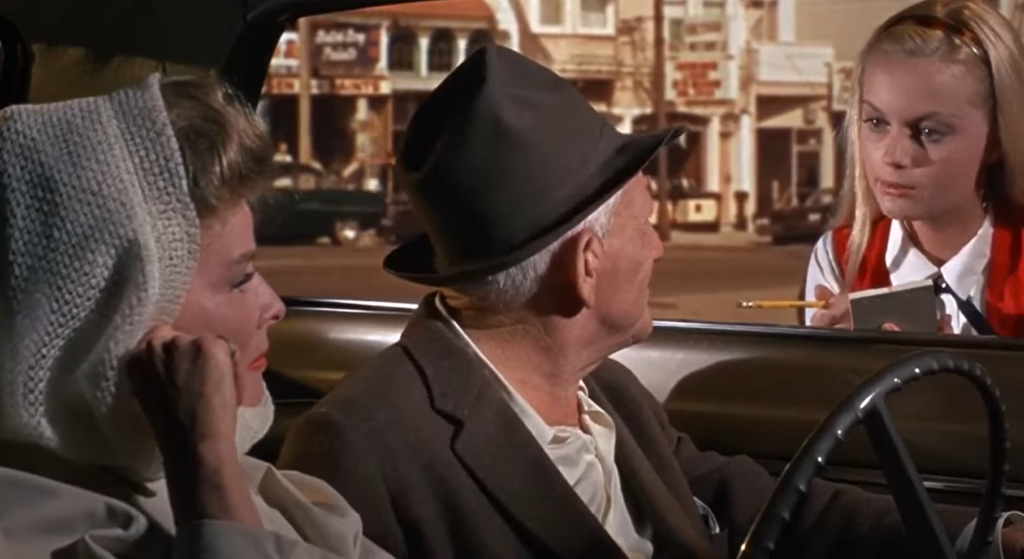
The other enormous problem — one apparently lamented by Houghton herself — is how poorly written her central character is; we never once feel that her one-dimensional “Joey” will actually make a good partner for Poitier, given how little we learn about her own passions and interests.
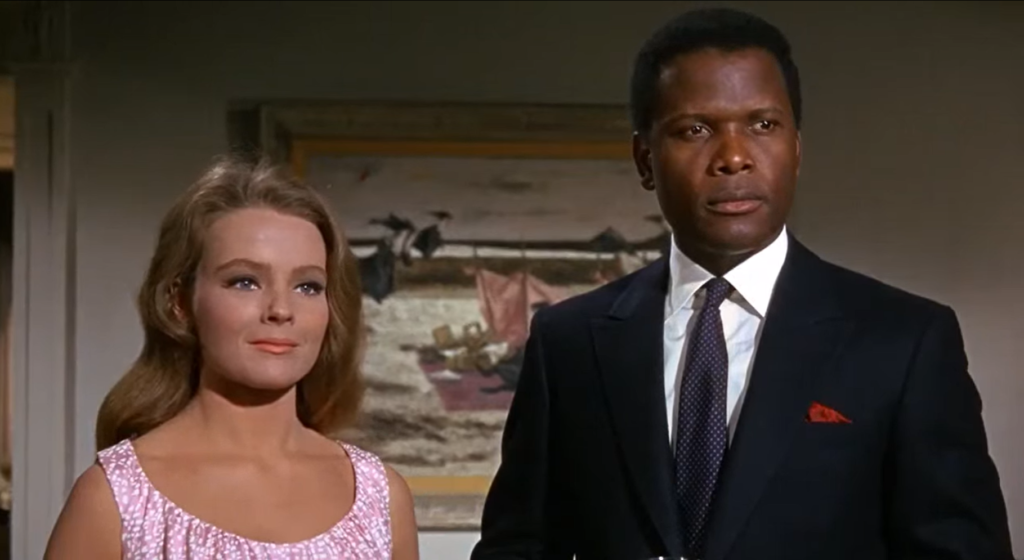
While I’m recommending this film as a one-time “must see” film simply for its historical significance, it’s ultimately both too dated and too “safe” to be considered a classic.
Redeeming Qualities and Moments:
- Katharine Hepburn as Christina Drayton
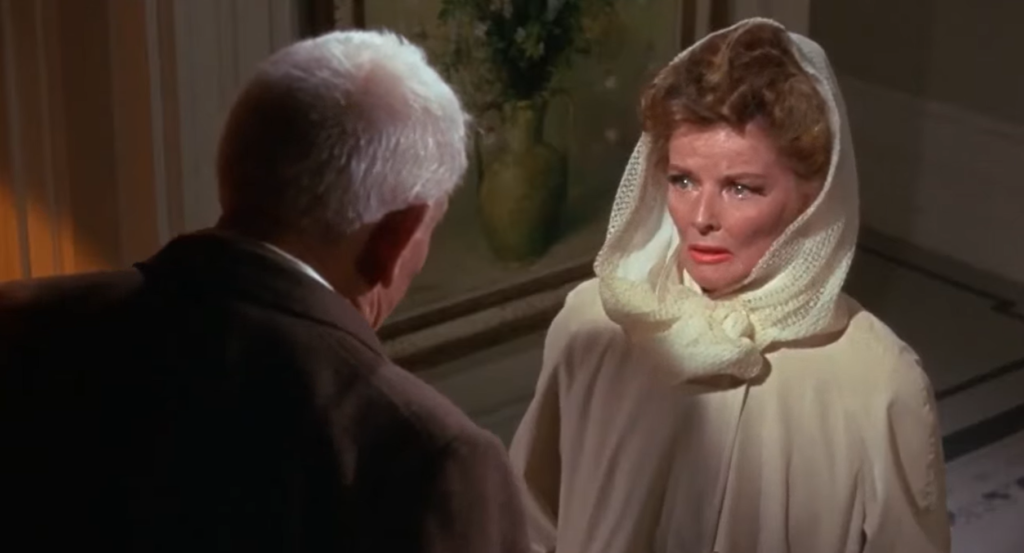
- Spencer Tracy as Matt Drayton
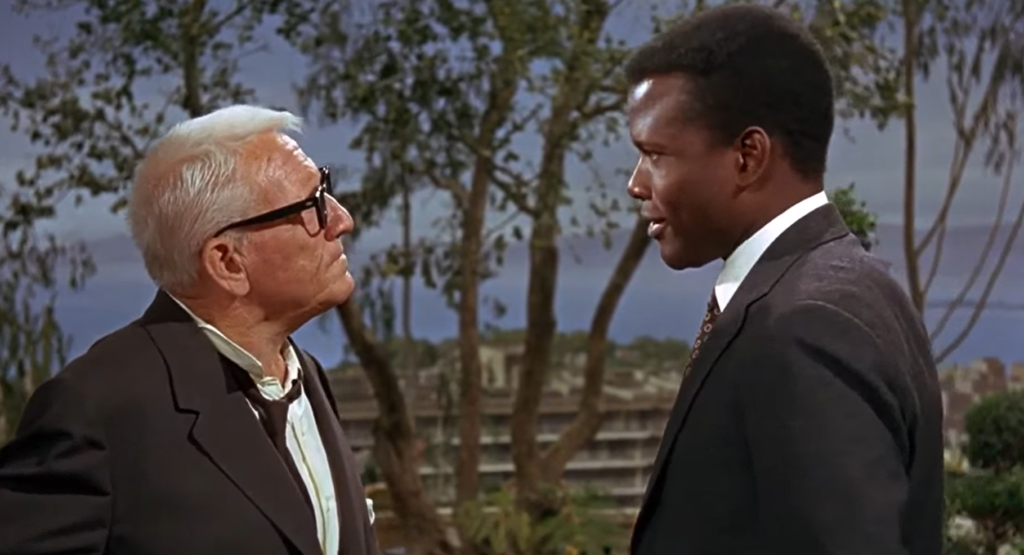
- Fine supporting performances by Roy E. Glenn, Sr. and Beah Richards
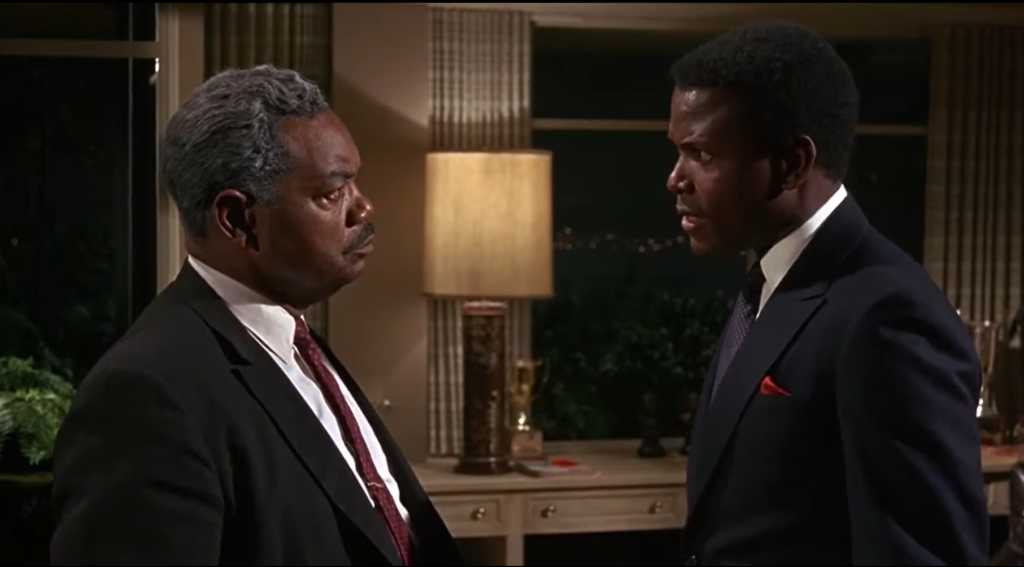
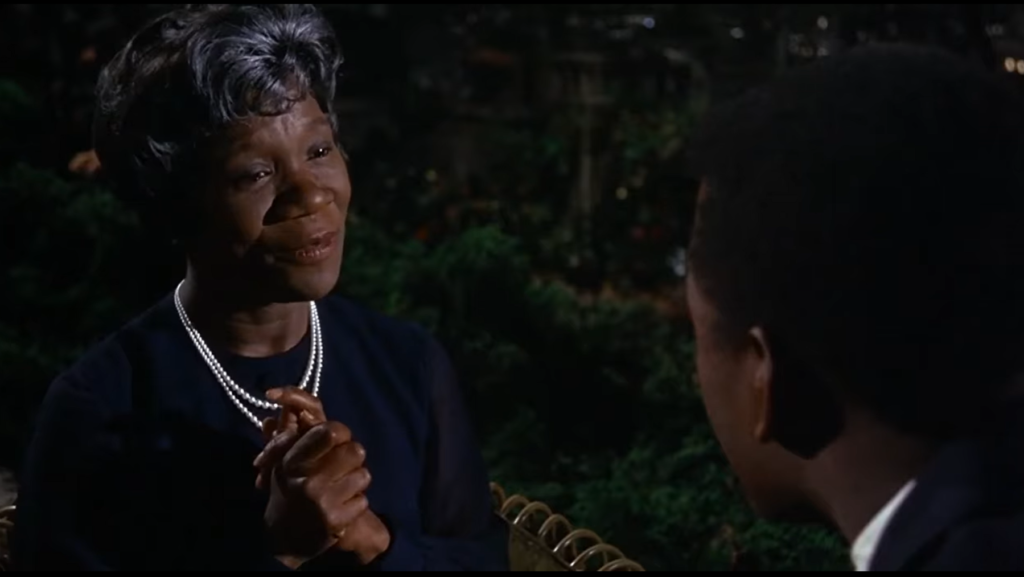
Must See?
Yes, once — simply for its historical significance.
Categories
- Historically Relevant
- Oscar Winner or Nominee
Links:
|
One thought on “Guess Who’s Coming to Dinner (1967)”
Even though this film does have historical significance, it’s extremely difficult designating it as ‘must-see’, even once. It’s not that it’s horrendously bad but – as was all-too-apparent on this rewatch – it is leaden almost beyond belief. The film pretty much just sits there as the various pairings of characters discuss whether or not the marriage should take place. The film’s sociological value is unfortunately undone by its oppressive earnestness. (Disappointment is augmented by the glaringly obvious sound-stage shoot, which serves to push the audience further away.)
Part of the problem with the premise is not so much the fact that Poitier is black but that Houghton’s pushy/somewhat-spoiled yet nevertheless bizarrely ‘flawless’ character wants to get married PRONTO and can’t seem to get it in her self-serving skull that, other issues aside, marrying on-the-spot is potentially unwise. (As well, part of Houghton’s bad performance is not her fault; the role is almost impossible to play believably.)
As I recall when I saw it on release, the film’s faults took a backseat to the then-urgent issue of widespread prejudice toward blacks. Since that is not quite the problem that it was in the ’60s, the film’s warts are now front and center.